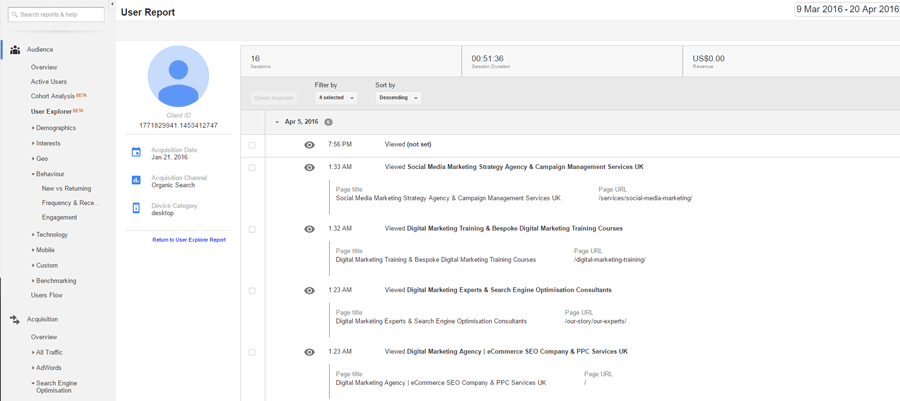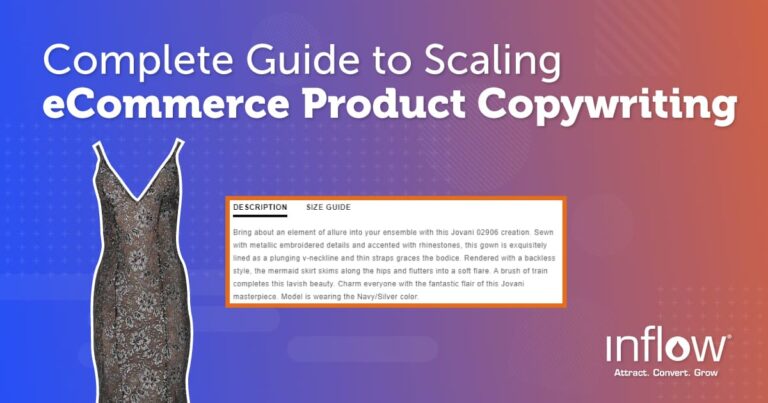If you’ve had the pleasure of Google beta testing on you, then you may have recently come across the new User Explorer feature in Google Analytics.
According to Google’s Analytics Release Notes for April 11, 2016, User Explorer Reporting is described as:
“A new set of reports in Google Analytics lets you perform analysis of anonymized individual interactions with your websites and apps. User Explorer utilizes existing anonymous Google Analytics data to deliver incremental insights that marketers need to improve and optimize their sites and apps. The feature is now available in the Audience sections. Anonymous Client ID and User ID will be surfaced in this report as a part of the release.”1
So it seems that Google are testing the new User Explorer tool in order to give website managers a more succinct overview of the user journey as a whole across your website. Let’s dig a little deeper into the tool…
At the top level on the user explorer page you can see information such as:
- Client ID – the unique value which Google attaches to each device from which users engage in your content.
- Sessions – total number of sessions within the date range, including screen views events etc. from a set device.
- Average session duration
- Bounce rate
- Revenue
- Transactions
- Goal conversion rate

The best part, however, comes when you click deeper into the User’s ID. This will give you a step by step journey of what action was performed by that user and the time stamp. Exciting right? This ability to drill down on individuals’ behaviour provides so many new opportunities and many in the industry are citing the change as a threat to platforms like Marketo, Eloqua and Pardot.2

The User Explorer feature allows you to filter, sort and segment the data to find the most interesting users. You can filter your data based on session information like Pageview, Goals, Events and Ecommerce metrics. This is particularly exciting for eCommerce brands who can segment their most profitable customers using this tool.
How to use the user explorer feature
Using the User Explorer tool, website managers can easily see what content these most profitable and engaged users looked at, what events an actions led them to the purchase including of course the acquisition channel! This kind of data is really valuable to inform content marketing efforts as well as other digital marketing strategy designed to reach users at the right point in their journey. This tool has some great potential to connect the dots of when it comes to who your customer is and what they want.
What does the future hold for the User Explorer tool?
It’s early days for the User Explorer tool and the more data that becomes available over time, the more website managers will find more sophisticated ways to generate insights. In conclusion, some of the top perks of the User Explorer tool are:
- Better understanding of individual users and their interaction with your website
- Easily viewing profitable customers with the ability to segment and search by transactional ID
- Better data to improve the user experience of your website
- Customer segmenting abilities provide good insights for digital marketing strategy
- Create more accurate audience personas for your brand
Thanks for reading
If you enjoyed this post, why not sign up to our email for more of the same? Or have a read through some of my other works on all things shiny and new in digital.
Sources
- https://support.google.com/analytics/answer/6392777?hl=en&ref_topic=6179391
- http://marketingland.com/google-analytics-new-user-explorer-report-shows-individual-anonymized-website-interactions-172998






